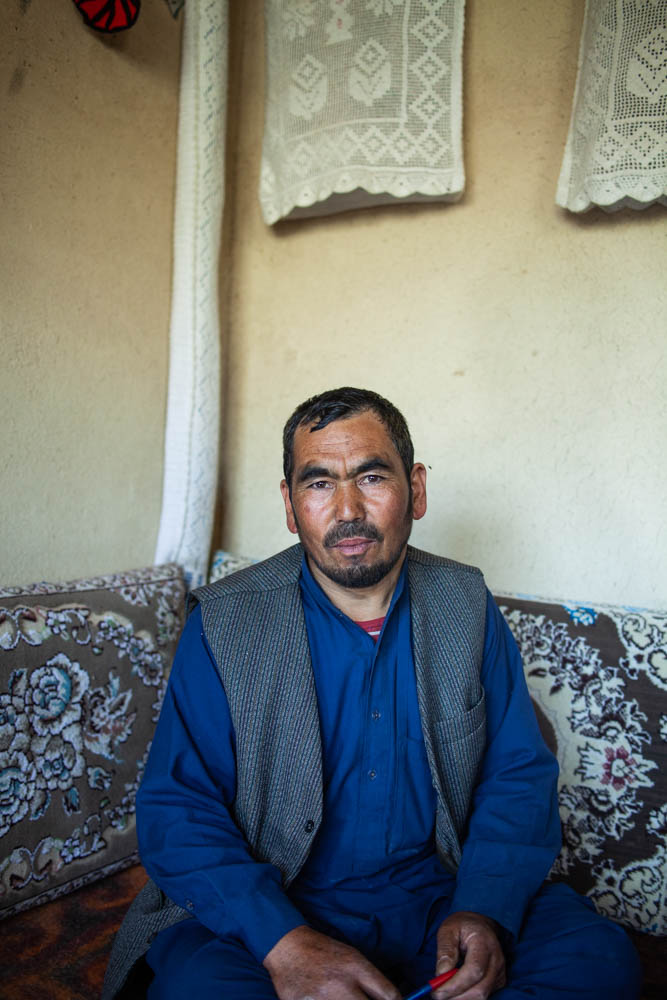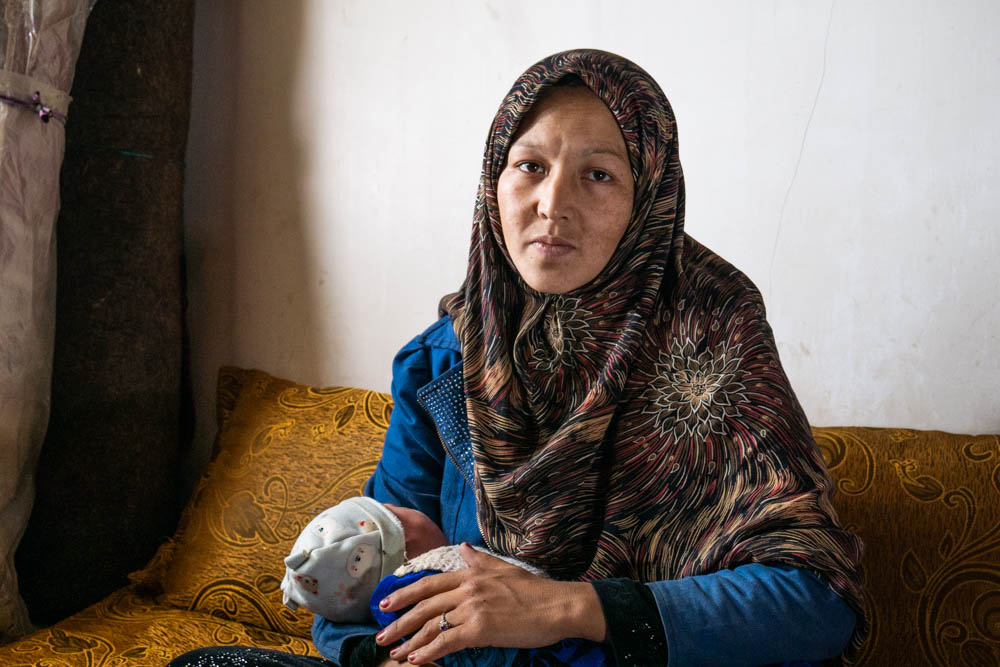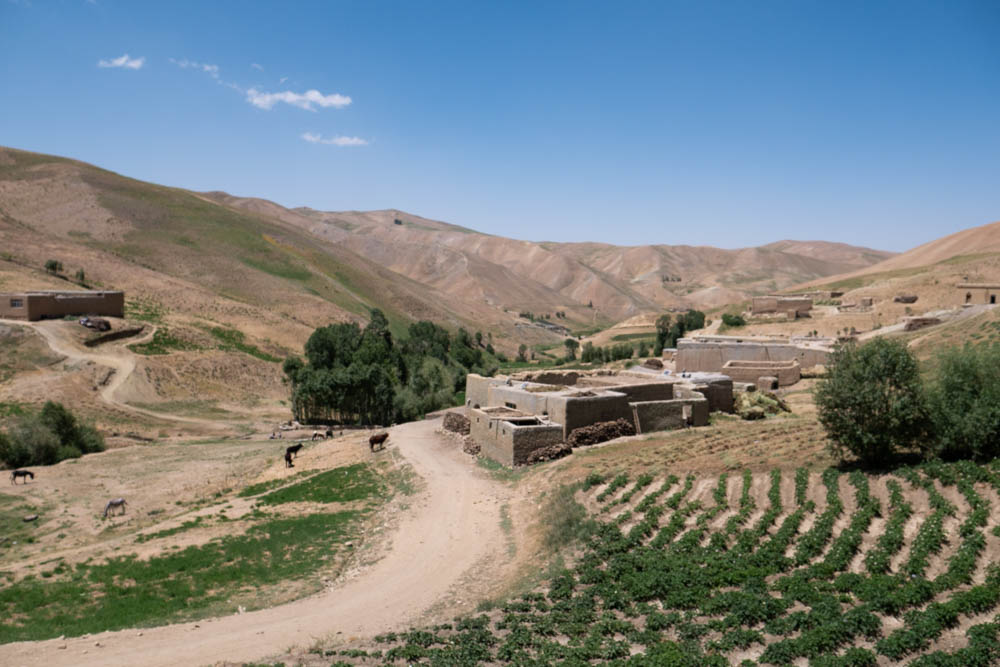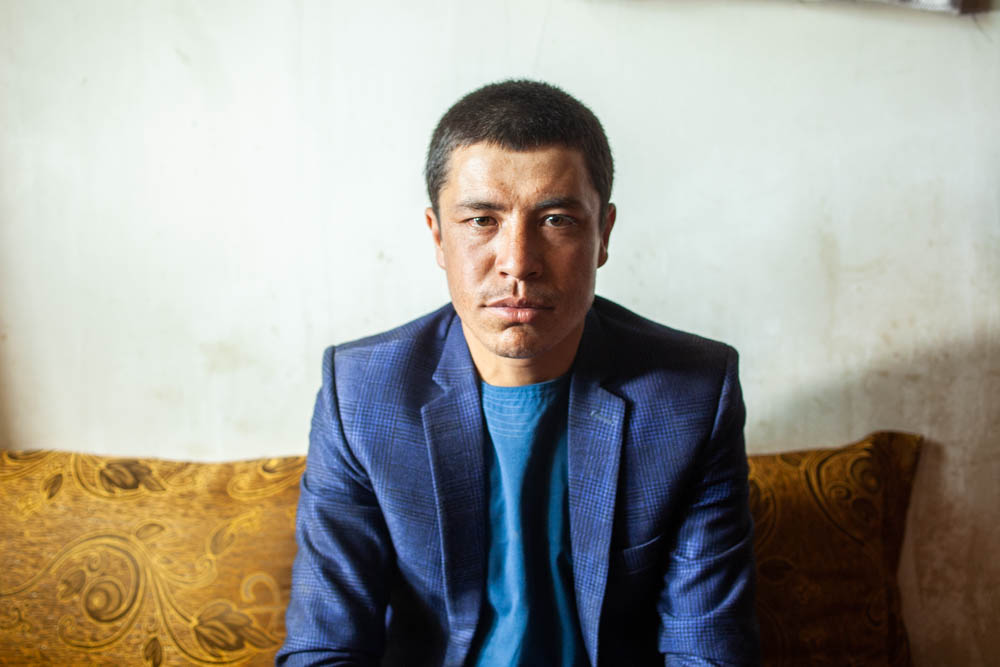Countless new mothers and babies have lost their lives in villages in the Central Highlands because of dangerous traditional practices and a lack of access to medical care. Now, thanks to the International Assistance Mission’s Community Development Programme, men and women know how to keep their villages’ mums and babies safe.

“I have six children, and I lost six children.” Reza’s heartbreaking experience is far from uncommon in villages in the Central Highlands.
“I lost six of my children,” says Reza*, whose quick speech and welcoming smile at first disguise the gravity of what he is saying. “I have six [living] children, and I lost six children. There were a lot of difficulties here. I have personal experience of this.”
Our team hears similar tragic stories in every village we work in teaching the Birth and Life Saving Skills (BLiSS) course; a lack of knowledge and resources leading to new mothers bleeding to death, and babies dying in their first few hours, days or weeks of life from sicknesses like tetanus and pneumonia.
When women experienced complications during labour, no one in Reza’s village knew how to help, and the nearest medical centre was unreachable. “We’d tie up a dog outside and try and get it to howl to keep the jinn [spirits] away,” says Reza, “or we’d fire a gun outside to keep the jinn away.” And even when the birth went smoothly, practices like using ash to clean the baby or cutting the baby’s umbilical cord over an old person’s shoe often led to life-threatening diseases.
But now, thankfully, mothers and fathers in these remote villages are beginning to tell a different story.
Somaya* smiles down at her one-week old baby girl. “This is my tiny child,” she says. “Before the course, I didn’t know anything. But now I have learned, and because of that we had everything we needed ready. We had clean plastic to give birth on, we had clean cloths, we had soap. We had everything just as they told us in the lessons.”
Mohammad*, Somaya’s husband, explains that their first child, a son, died from pneumonia. With their new baby daughter, though, things were different.
“Because of your course, we knew what to do,” he says. “It taught us what we should do when a mother is bleeding a lot, and that during pregnancy women should not do any heavy work.
“I believe that the effects are long-lasting. Because once one person has had a child and used those new practices, they will continue to use those. And we’ll continue to teach and learn from one another.”

“This is my tiny child.” Somaya did things differently for the birth of her baby daughter.
Somaya and Mohammad’s baby girl snuggles into her mother, tiny and perfect. Somaya gave birth on a clean plastic sheet, they made sure the umbilical cord was properly tied and cut, and that their baby was cleaned and wrapped up warm. The simple lessons they learnt in their village – both men and women – meant they knew what to do to safely deliver their baby, and how to respond if any complications arose.

“Both [men and women] have to know,” says Mohammad. “It can’t just be the man knowing. And it can’t just be the woman knowing. They both need to know and be aware of the things that they need to be doing.
“Usually a sister or a mother-in-law will be able to come and help, but now, if they are not available, I can help my wife and my relatives.”
IAM has been running the BLiSS course in villages in the Central Highlands for over a decade, spreading knowledge community by community to help save as many mothers and babies as possible from dying from preventable illnesses and unnecessary birthing complications. So far in 2019, we’ve taught BLiSS courses in 26 villages – helping women and men understand how to look after pregnant women, how to identify if something is wrong, why they need to save money and prepare for complications, how to give birth, how to look after a newborn baby, and good nutrition for pregnant women and young children.

“We’ll continue to teach and learn from one another.” Mohammad believes the effects of the BLiSS course in his village will be long-lasting.
We’re challenging dangerous practices and beliefs by offering safer alternatives. And as soon as people hear there is another, more healthy way, they change their behaviour. Because everyone wants their wives, daughters, mothers, sisters, and new babies to survive.
These simple lessons are saving lives in every community we’ve worked in. And they mean mums and dads like Somaya and Mohammad get the chance to dream about their children’s futures.
“I want them to be really healthy,” says Mohammad. “I want them to go on and study. These are the things I think about as a father.”
Our lessons didn’t reach Reza’s village in time to save his six lost children. But he is still grateful for the impact they will have for the next generation, for his remaining children, and for his future grandchildren and great grandchildren.
“I feel like we know what to do now,” he says. “We learnt as a village so we can help more people. A world of thank yous for the work you have done.”
*Names changed.
This project was funded with UK aid from the UK government. Want to know more about the life-transforming work of IAM’s Community Development Programme team? Check out our development page!